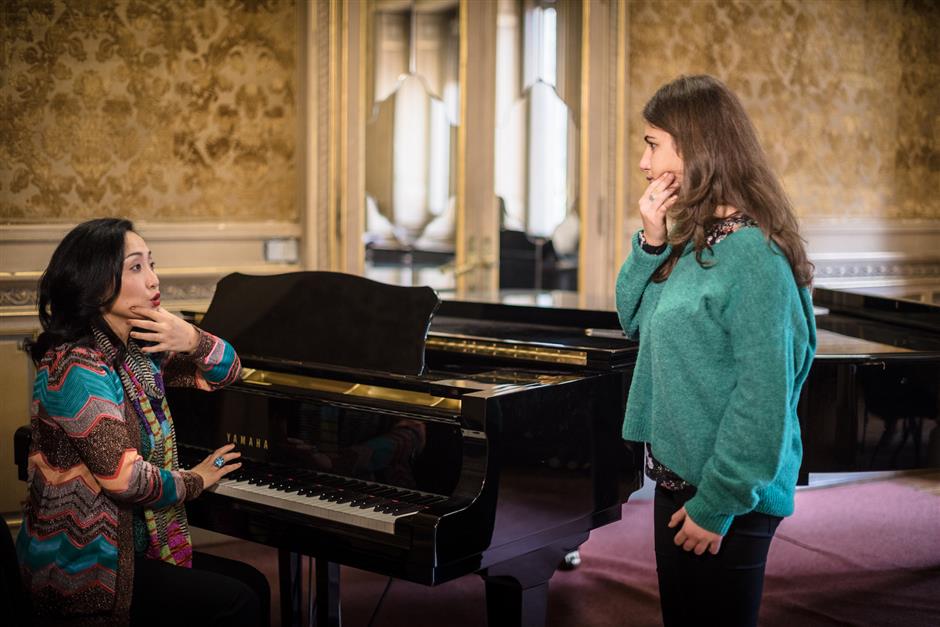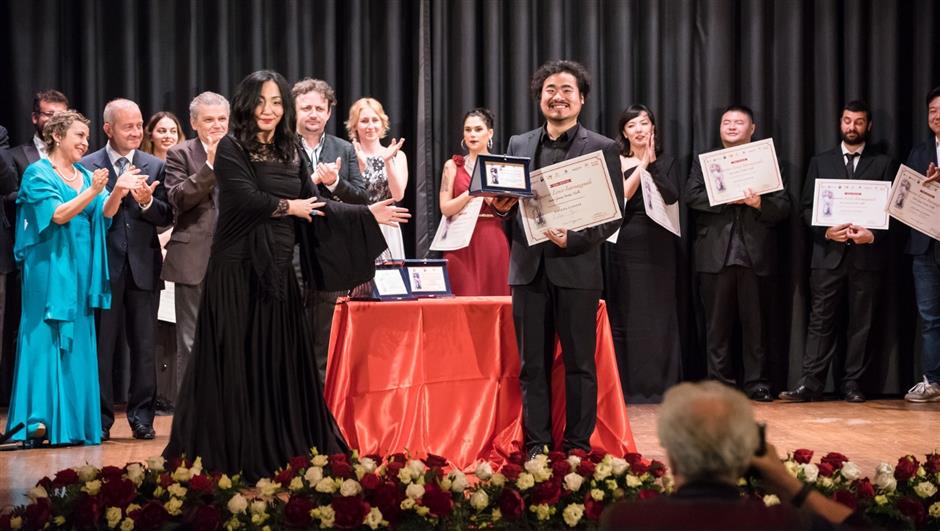Chinese soprano keen to encourage young talent
Outstanding technique is surely essential for a singer’s success, but sometimes a fair and just platform may play an equally important role. That’s the belief of 39-year-old Zheng Nan, a Chinese-born soprano who has shaped her career in Italy for years and is now determined to create a positive environment for young singers.
Apart from teaching at Giacomo Puccini Conservatoire as a lifetime tenured professor, Zheng established the International Singing Contest Saint Gianna Beretta Molla in 2016 in Mesero with her Italian baritone husband Mauro Bonfanti, a student of Pavarotti. The contest attracts around 120 competitors each year.
With the 2018 contest just finished in May, Zheng was in Shanghai recently, searching for potential collaborations who may help bring the contest to more countries in the future.
“Though it may still be a quite small contest with limited influence at the moment, we are trying our best to have it benefit more, while keeping it clean and fair, as that is why I initiated the contest in the first place,” says Zheng.
Competition, though sometimes criticized for ruining the pleasure of music, is one of the most effective tools to help young talent gain confidence, recognition, guidance and opportunities, according to Zheng.

Chinese-born soprano Zheng Nan instructs a student.
Zheng graduated from Shanghai Conservatory of Music in 2003 and furthered her studies at the Rossini Conservatory in Pesaro, obtaining a master’s degree in opera singing with a scholarship. Yet, as a newcomer to Italy, Zheng was not so sure about her singing skills until winning the first prize in a singing competition in 2004.
That not only boosted her confidence for various auditions at opera houses but also offered her a year’s study with Michael Aspinall, a British musicologist and singer.
In 2006, she was the first Chinese singer to perform at the Rossini Opera Festival in Rossini’s “The Journey to Reims.” This launched her professional career, starring in classics such as Verdi’s “La Traviata,” Rossini’s “The Turk in Italy” and Mozart’s “Solemn Vespers of the Confessor,” and touring around the world.
Feeling grateful for that first competition success and disappointed at the number of competitions around the world with dubious reputations, two years ago Zheng decided to establish her own competition.
As she had just given birth to her second child, Zheng named the contest after Saint Gianna Beretta Molla, a famous Italian pediatrician, as homage.
As a singer who made her own way to the stage, Zheng was clear about what a young talent would need. Apart from cash and a scholarship, she insisted that the contest provide the winners with opportunities to perform in concerts and opera productions by the Cultural Association of Giuseppe Verdi in Mesero, Milan.
“I knew the water as I have waded through it personally,” says Zheng. “I am willing to help, not just in their singing techniques.”

Zheng Nan presents certificates to winners of the Saint Gianna Beretta Molla singing contest she established in 2016.
To Zheng’s satisfaction, more than 100 young people applied for the contest in the first year. The number kept increasing in the second and third year, with some “old faces” who had entered before returning to take part.
“We are more than encouraged, as their reappearance just showed how we are trusted,” says Zheng. “They came for a fair contest where they could grow.”
Zheng says all the funds for the contest to date come from the local government and the Ticino Olona Foundation, and none of the 12 winners so far were students of either Zheng or her husband.
“Surely we did not intentionally eliminate our own students, but we never give them priority in the contest,” says Zheng.
There have been quite a number of participants from China, with more Chinese music students studying in Italy these days.
A Chinese singer came first last year, while another took third prize this year. That triggered Zheng’s thoughts about expanding the contest’s influence by having a preliminary selection in China.
“A reliable partner is of course essential for the plan. We welcome all those who are willing to help, but with the premise of keeping the ground clean,” says Zheng.
Visit www.associazionegiuseppeverdi.com for more information.
















